
By Ronald E. Keener
Not all church volunteers are the same. One can argue that a volunteer can serve in most any capacity: in the nursery, directing traffic or counting Sunday’s receipts. The other side of that argument is that a banker by profession is better used on the finance team than cooing a baby to sleep in the nursery.
Churches have what is called high-potential or high-capacity leaders, but often don’t know how to use them or engage them. Often these people give many hours of their time, without salary, and are in a position financially and family-wise that permits their being used in this way. Take this commentary from a woman whose name appears on the website staff listing of a megachurch in California:
“I do not receive pay for my work at the church, but volunteer my time. I own, along with my husband, two businesses which we started more than 25 years ago.
“I am, however, a licensed ordained minister and have served as a missionary, youth minister, Christian Education director, as well as adjunct professor at LIFE Pacific College. I earned a master’s degree in Christian Education from Talbot Seminary.
“God has blessed our businesses with a level of success that affords me the time to serve and I am impassioned by giving my time to a ministry that I believe in and want to be able to impact with any level of expertise that I might bring,” she writes.
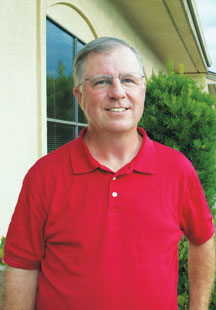 One congregation with several high-capacity members is Christ Community Church in Milpitas (CCCM), CA, with 1,500 congregants and growing nearly 10 percent a year, says business manager Mark Simmons. “From a pretty much all-white natural-born citizen population to a congregation made up of people from most of the nations of the world,” Simmons describes the church. “A church others think has ‘arrived.’ But we think is only starting to learn how to be the people God wants us to be.”
One congregation with several high-capacity members is Christ Community Church in Milpitas (CCCM), CA, with 1,500 congregants and growing nearly 10 percent a year, says business manager Mark Simmons. “From a pretty much all-white natural-born citizen population to a congregation made up of people from most of the nations of the world,” Simmons describes the church. “A church others think has ‘arrived.’ But we think is only starting to learn how to be the people God wants us to be.”
In researching for this story, a couple of obstacles arose: People don’t see themselves as anything special over and above other volunteers in the church, and being in the category of high-capacity never occurred to them before.
But still, they bring skills and background to the church from their secular careers, and the additional hours to make a huge impact on the management and outreach of the congregation.
Church is ‘second home’
One of those high-capacity and culturally diverse people is Tuan Trinh, with medical training, but an entrepreneur by passion and choice. He developed an electronics company, specializing in liquidation of consumer electronics such as Wi-Fi components, X-Box, PDA, and GPS for companies such as Diamond, Microsoft, Palm and Garmin.
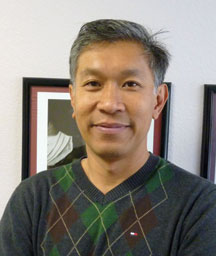 That was then, but today he switched from consumer electronics to self-sustaining products like LED and solar energy. “My LED concept is to bring a light solution to facilities and homes at a low cost and short return of investment,” he says. Among his customers are Costco, Google and YouTube, and churches in his area, such as Salinas Presbyterian, Abundant Life, and United Methodist Church.
That was then, but today he switched from consumer electronics to self-sustaining products like LED and solar energy. “My LED concept is to bring a light solution to facilities and homes at a low cost and short return of investment,” he says. Among his customers are Costco, Google and YouTube, and churches in his area, such as Salinas Presbyterian, Abundant Life, and United Methodist Church.
And to his own Christ Community Church as well: “I have donated and installed many LEDs, saving us on the electricity bill by the hundreds of dollars each month,” he reports. “Business is growing and I have incorporated SoLED Energy Inc.”
For such a high-energy, high-capacity guy, Trinh says “church is my second home and I would take care of the material and people of our congregation as my own family. Volunteerism is a strange concept to me since everything that I do is as if I am at home,” he says.
“I believe the key to having successful volunteers in the church requires the individual to realize their passion for the church, fearless initiative to try a few given tasks, and loving encouragement from a mentor or staff member,” he says. “We just expect the trial can be long and with many attempts.”
Trinh presently works with the facilities and business managers at the church in “overseeing our church material well-being,” as he calls it. “I work on numbers and designs, putting ideas on paper and bringing them to realization.” The church work engages him some 30 hours a month.
Engaging people like himself as high-potential members takes a certain understanding of the pastor, Trinh says. “A very wise pastor would recognize these gifts and passions from high-capacity people, encourage and empower them, and trust them enough to give them full power to do their job. Rather than monitor or control these individuals, full freedom and range in their jobs will give a better than expected result.”
One reason Christ Community is attracting high-capacity people might be that it is located in the Silicon Valley. Another member of the congregation, Don Chin, says, “Silicon Valley is an epicenter of international culture and hosts a variety of technology companies, bringing many people from around the world to be part of this community.” The international expression of the church is seen too, he says, in the fact that the church is the forerunner of church sponsorship for Compassion International, and provides many opportunities for service abroad as well as locally.
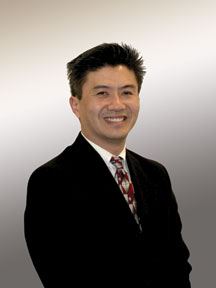 Chin is a senior business and engineering staff operations director for Ericsson, that sells telecom equipment to 180-plus countries in the world. He manages the functions of more than 1,400 engineers in worldwide locations. Before joining Ericsson, he worked in various startup companies located in the Silicon Valley. He says that he has a common theme to his career choices: “risk and adventure – to make a difference.”
Chin is a senior business and engineering staff operations director for Ericsson, that sells telecom equipment to 180-plus countries in the world. He manages the functions of more than 1,400 engineers in worldwide locations. Before joining Ericsson, he worked in various startup companies located in the Silicon Valley. He says that he has a common theme to his career choices: “risk and adventure – to make a difference.”
So when he carries his background into his church, it is no surprise that it includes technology leadership at CCCM. His engineering degree has taken him into new technology development, product management, product marketing, program management, business development, consulting services, and what he calls his current favorite, media productions. That last area may explain his membership since 1994 in Screen Actors Guild. At Ericsson he produces movie, TV, commercial and industrial pieces.
Building better communities
In his church, Chin is engaged in small group ministry, on the foundation board where he is the current president, in men’s ministry leadership, and leads vocals for Sunday morning services and theater productions, among other engagements that can total some 20 hours a month of his time on behalf of his church.
Chin sees volunteerism as being “organic” left to individuals. “Not only am I fully supportive of individuals answering God’s calling to serve in ministry areas of their choice, I am also convinced that there is an ‘anointing and affirmation’ from church leadership to ask individuals to serve in specific areas of church missional direction,” Chin says.
He says that leadership must personally invite people to serve and volunteer. “Being of Chinese descent, it’s common in our culture to ‘not stand out.’ But if directly asked by leadership to help serve in the church, many would answer the call,” Chin says. “Serving in the church can be more than leading a small group. It’s using skills in finance, funding, operations, technology, etc., to help build better community.”
Volunteerism is simply doing what God has gifted individuals to do, he says, and that “we need to remind the church that God performs extraordinary miracles through ordinary people every day.”
Somewhat similar, he was asked by his pastor to serve in a special interest group to help understand and define the needs of Asian American families within CCCM.
Church of expatriates
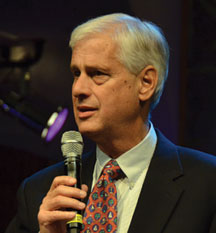 Abbott Smith, another church member, retired from Hewitt Packard after 40 years in the workforce, 27 of those with HP. For five of those years he lived in Europe, near the World Court in the Hague, Netherlands, and attended a small church of predominantly expatriates from some 28 nations.
Abbott Smith, another church member, retired from Hewitt Packard after 40 years in the workforce, 27 of those with HP. For five of those years he lived in Europe, near the World Court in the Hague, Netherlands, and attended a small church of predominantly expatriates from some 28 nations.
It was a time that gave him a call to serve in ministry. Back in the U.S., he felt God’s call for his ministry in the workplace, but in 2007 God provided an unparalleled early retirement option from HP.
At that company “I was a director of market development for one of the product groups, but the main focus for many of my years in business was change management as the speed of technological evolution increased. I had the privilege to work at the most senior levels of large companies, and in some cases governments, all over the world dealing with technological innovations and their impact on business and culture.
“So creative and innovative thinking you might say was in my DNA,” he believes.
Smith served on a seminary board and on the board of Mount Hermon Christian Camps and Conference Center. He then was on the church and foundation boards, on the pastoral transition committee, and then chair of the pastoral search process following the previous pastor’s 37 years in the pulpit. The church called Mark Tumney to lead the church in March 2012.
Smith was among those who saw the recession in 2008 and believed “we were heading in turbulent financial waters.” He went to Nashville to learn the Financial Peace University model of Dave Ramsey and began counseling individuals and couples in the church. He believes that through the classes and counseling sessions the church saw the reduction of personal unsecured debt by more than $2 million since 2009.
Ebb and flow of life
Smith, being retired, can put in as much as 40 hours of service to his church each month. “High-capacity servant leadership comes out of a humble servant’s heart and not out of the need to be in the foreground of church visibility. Each person has a God-shaped volunteer service that can bless both them and the recipients of the service. They just need to be encouraged to find it, and embrace what God is doing.”
Mark Simmons sees high-capacity service from a distinct vantage point — as business manager of the congregation, and with a business and consulting career as well. Like the others, he worked in the high-tech industry for 30 years as an engineer and executive before coming on staff.
He says he was one of those high-capacity people interviewed for this article before joining staff: “You’d be hard pressed to name a church position that I did not do as a volunteer somewhere during that time.” In both his past work and current assignments, he describes himself as the “Swiss army knife” for the church. “I can and do a lot of different things on staff and volunteer for many others.” Consequently, he spends 200-plus hours between staff and volunteer work each month and “considers it a privilege, loving every minute of it.”
Making “the ask” can be the most difficult part of engaging volunteers. “We tell people God has a plan for their life. Well, let’s act like it, and help people discover and explore their giftedness. Teach people how to discern God’s will. Let them explore volunteer opportunities without feeling like they are signing up for a lifetime commitment,” Simmons says.
“Anyone in our congregation can start a new ministry – and many do. In today’s vernacular we have many serial entrepreneurs at our church. Many ministries and businesses have been started in this way and many other ‘Barnabas’ types have come alongside in these undertakings. I don’t want to leave the impression that there is a free-for-all. There is a process, there is discernment. But it is one thing to discern God’s will and another to fear what you can’t control,” Simmons says.
‘Raise your hand’ believer
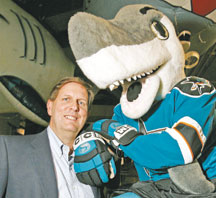 Charlie Faas, an elder and the treasurer in the church, says he’s a huge proponent of saying “Raise your hand” in being engaged. “All of us need to give our talents to support others in need. By simply raising your hand and volunteering, you can greatly improve your self-confidence, skills, networking, and you are doing God’s work in our church and the community.”
Charlie Faas, an elder and the treasurer in the church, says he’s a huge proponent of saying “Raise your hand” in being engaged. “All of us need to give our talents to support others in need. By simply raising your hand and volunteering, you can greatly improve your self-confidence, skills, networking, and you are doing God’s work in our church and the community.”
Faas says everyone should do skills assessment – for their sake and that of the church. His own strengths include being executive vice president and CFO for Sharks Sports & Entertainment, which includes a number of sports businesses, including the NHL San Jose Sharks team. He also teaches in sports management at the University of San Francisco.
He sees the common elements of finances and teaching in serving his church. “It’s easier to be involved in things when areas of my expertise are needed and utilized,” he says. “These areas come naturally for me and I can help the church with insights – and I also get to grow personally.”
Says Faas: “I believe that God has blessed everyone with different talents. Sometimes it takes people time to figure out what their talents are. Our church seems to do a good job encouraging people to step up and find their talents.”
Many churches have high-capacity, high-potential volunteers, many still employed and many retired and available to give generously of their time and abilities to their congregations. Engaging them can often depend on how they are asked, supported and encouraged.
_________________________________________
How Willow Creek attracts high-capacity leaders
In the early years of Willow Creek Community Church, Warren Beach served in several capacities, including a term on the board of directors of the South Barrington, IL, church. He proved his mettle as a high-capacity staff member while taking no salary from the church.
Later he directed Willow’s Good Sense ministry to help congregation members learn to handle their personal financial responsibilities.
After that he served with a small team to assist the design and launch of satellite church sites. Finally, after serving on the advisory board of the Global Compassion and Justice ministry, he stepped into the director’s role for seven years.
How churches can do it
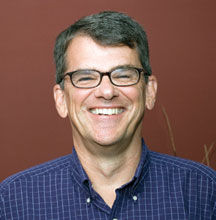 Warren has advice for other churches who want to approach members who might fulfill a high-capacity function, often demanding a lot of hours but without salary.
Warren has advice for other churches who want to approach members who might fulfill a high-capacity function, often demanding a lot of hours but without salary.
Looking back he saw that Willow developed a culture that invited entrepreneurial ideas to complement what ministries the leaders of the church sought to establish. In other words, there was an environment that invited ideas on how to serve people. This environment led to high-capacity people who didn’t just wait for someone to tell them how they can help; it also opened the doors for solution-oriented, high-capacity types to engage.
“I think Willow’s value for excellence in ministry also attracts high-capacity people, Beach says. “When a church sets the bar high, they will attract high-capacity volunteers in professions that demand excellence and don’t want to invest their precious time in mediocre endeavors.”
This means church leaders need to come alongside those high-capacity people with sufficient resources to get the job done well.
“This can also mean access to the church leadership team’s time to maintain sufficient communication with regards to ministry design and implementation. High-capacity types must be given an opportunity to take a big bite of the apple – a bite that is commensurate with their skill set and capacity is very important,” he says.
“Once high-capacity types get involved in roles that challenge them and they have a good experience, it attracts other such individuals to get off the bench and into the game,” Beach says.
“It would be a huge missed opportunity for the church not to take advantage of this window of human potential.”
Why it worked for Beach
“Certainly having a career that provided the income and flexibility — to be available to step into roles at church that required significant time demands — was essential.
“Having several consistently profitable trading years enabled me to reserve resources that allowed me to serve and not seek a church salary for daily needs,” Beach notes.
Warren is married to Nancy Beach, who worked for the church and now in the Willow Creek Association. “That helped with the income piece,” he acknowledges.
“Having the flexibility to hit the pause button on trading and investing to invest more energy into my volunteer assignments – when required – made serving at the leadership level possible. These leadership roles often required a great deal of time especially with ministries that were at a formative or expansionary phase.
Beach says he is wired with a gift of ideation and finds himself attracted to new ministry design or developing a vision for an existing ministry.
But other high-capacity types may be wired differently. Beach says they may be limited as to the time they can consistently stay involved in a leadership role due to their career or family demands, which may require them to pull back from full-time service.
“I think it is important for church leaders to fully understand the reality of each high-capacity individual and not place them in roles requiring longevity that may not be consistent with the volunteer’s expectations. It is up to the volunteer to provide a clear definition to the church leadership regarding what they feel they are able to do and for how long.”
— Ronald E. Keener



The title of this story is a story unto itself: where in scripture are we told to “use” people? The author says “churches don’t know how to use them”, and then defines a class of fellow believers as “high-capacity” who permits their “being used”. The author then goes on to describe how various churches “use” their “high-capacity people” even while admitting these “people don’t see themselves as anything special over and above other volunteers in the church, and being in the category of high-capacity never occurred to them before.” Well why should it? Why should any church be promoting the idea that certain believers are more special and more valuable because they can be “used”?? Jesus never spoke this way! Jesus never “used” people, and in this culture of narcissism this is a dangerous way to view people and ministry. The church exists to glorify God, not to use others to glorify itself.